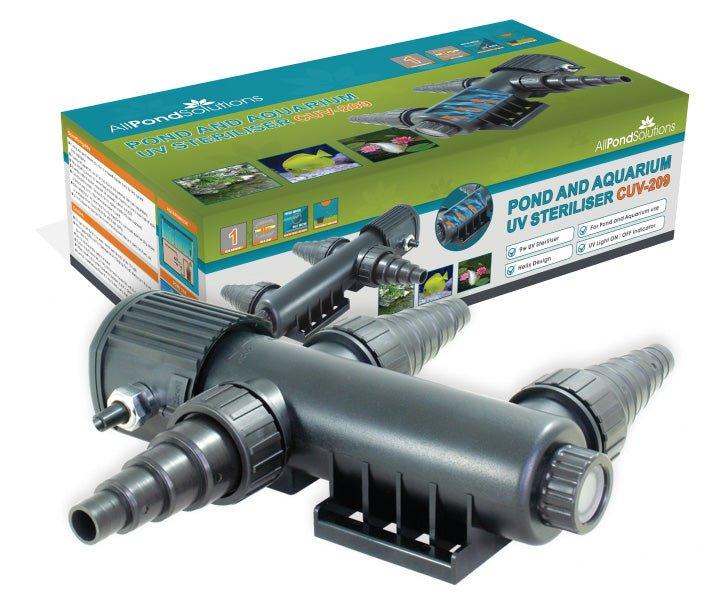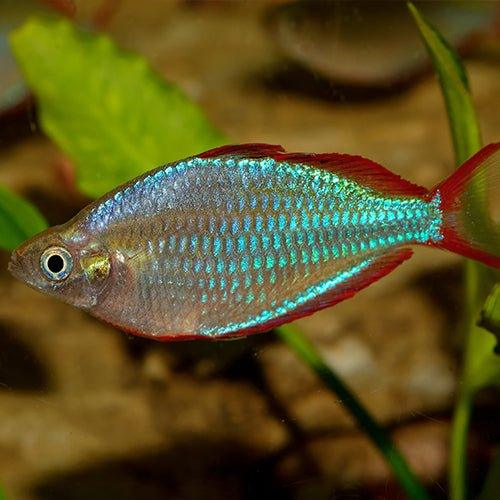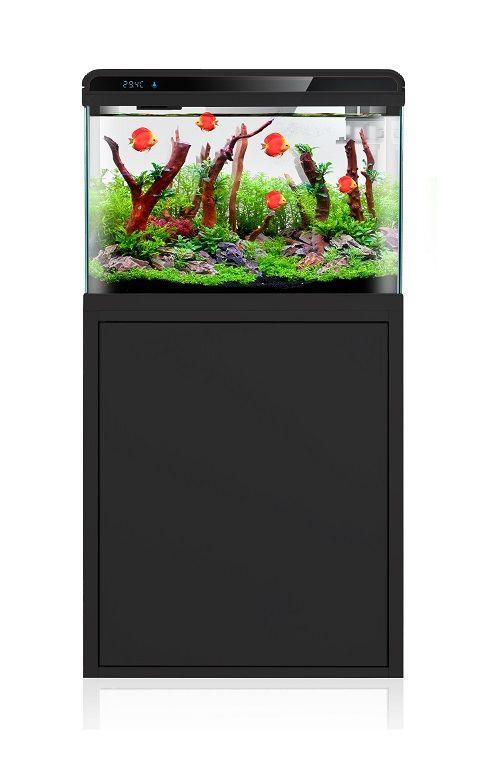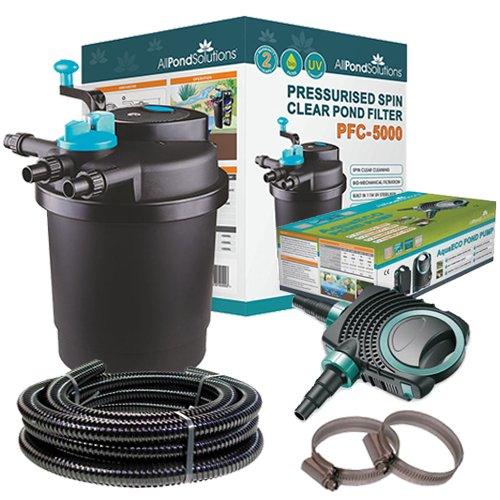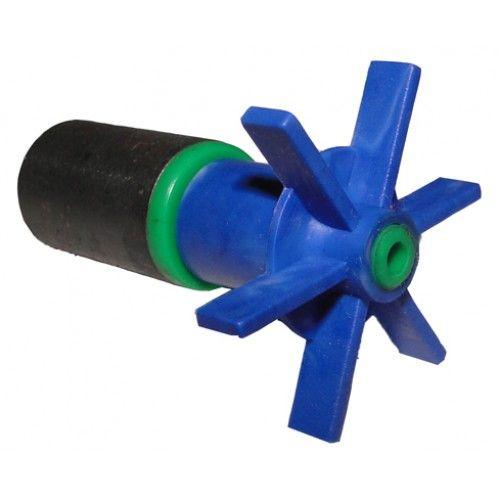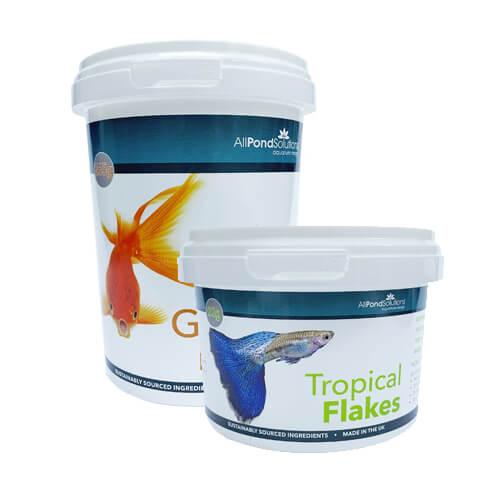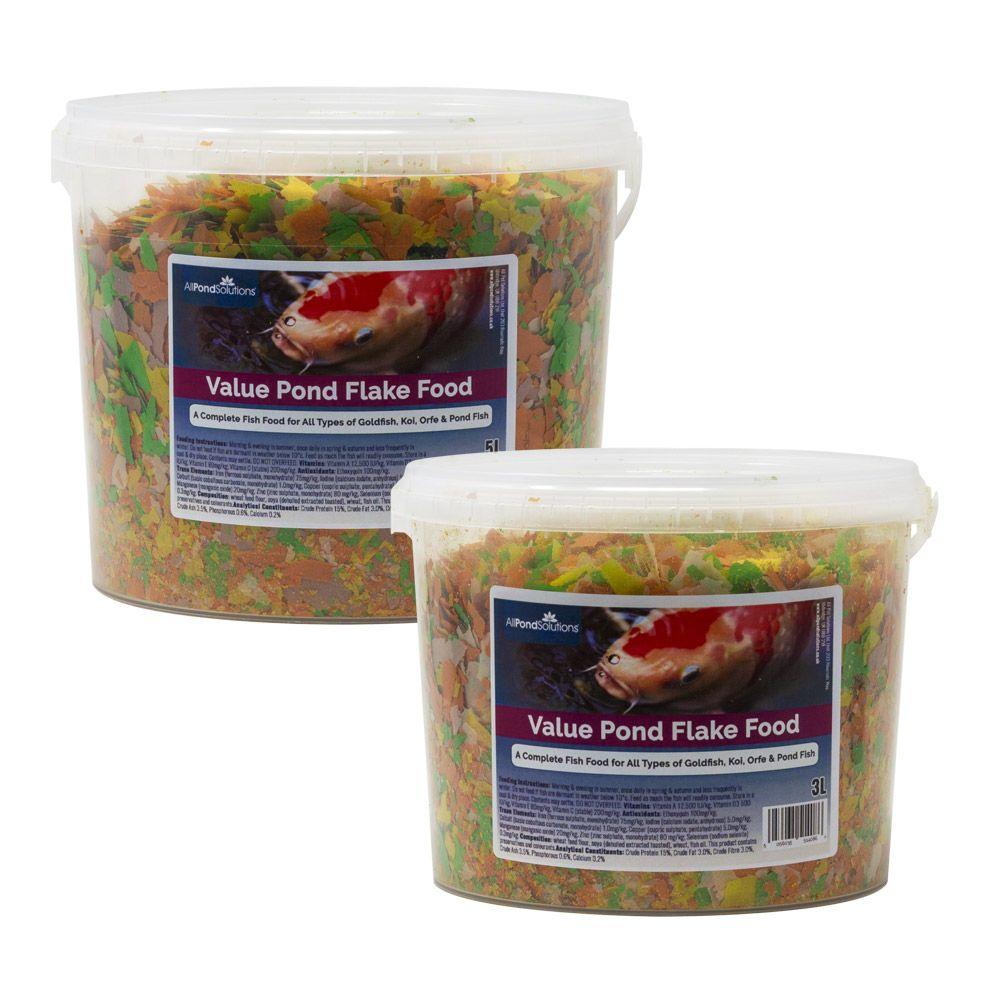Scientific Name: Melanotaenia praecox
Please note – The image used above is for illustration purposes only; Size, colour and sex may vary. Many of our livestock species are sold as juveniles and have not yet reached their full size and colour potential. If you have any concerns about the size or colour of the livestock you wish to order, please contact our livestock team via our support centre before placing your order. Due to the large quantities of livestock orders daily, the livestock team will are unable to select fish / shrimp to meet specific gender or aesthetic needs.
Approximate purchase size : 1 - 2cm
All Pond Solutions will always endeavour to supply as close to the approximate size range as possible. Due to variations from suppliers on rare occasions this may not always be possible. Images used are to show the full potential of the fish when fully mature and are not always representative of juvenile specimens.
How easy are they to care for?
We would class this as an easy fish to care for. Generally quite hardly and accepting of a range of water conditions.
How large can they grow?
Most specimens will grow to around 4-6cm when kept in an aquarium. The maximum length this species can grow to is about 8cm.
Where in the world are they from?
Most commonly found in the Papua New Guinea river systems in Indonesia.
What is the ideal number to keep together?
They at their best when kept in shoals of 6-10
What water conditions do they require?
Ideally slightly acidic water conditions are provided between 6.5pH - 7pH however they will happily live in conditions ranging up to pH of 7.5 or higher. Temperatures should range between 24-26°C.
What should you feed them?
Will happily accept a broad range of foods. Fast competitive eaters so not best kept with slow feeders or timid fish.
How compatible are they with other fish?
Peaceful fish that are unlikely to cause any issues in an aquarium. The only point to keep in mind is their feeding habits.
Can they be bred in captivity?
As with other Rainbow fish they are not overly hard to breed, however they are egg scatterers so if breeding is to be attempted it is advised to seperate groups into fry tanks to breed and then remove back to the main community to allow the fry to be raised.
